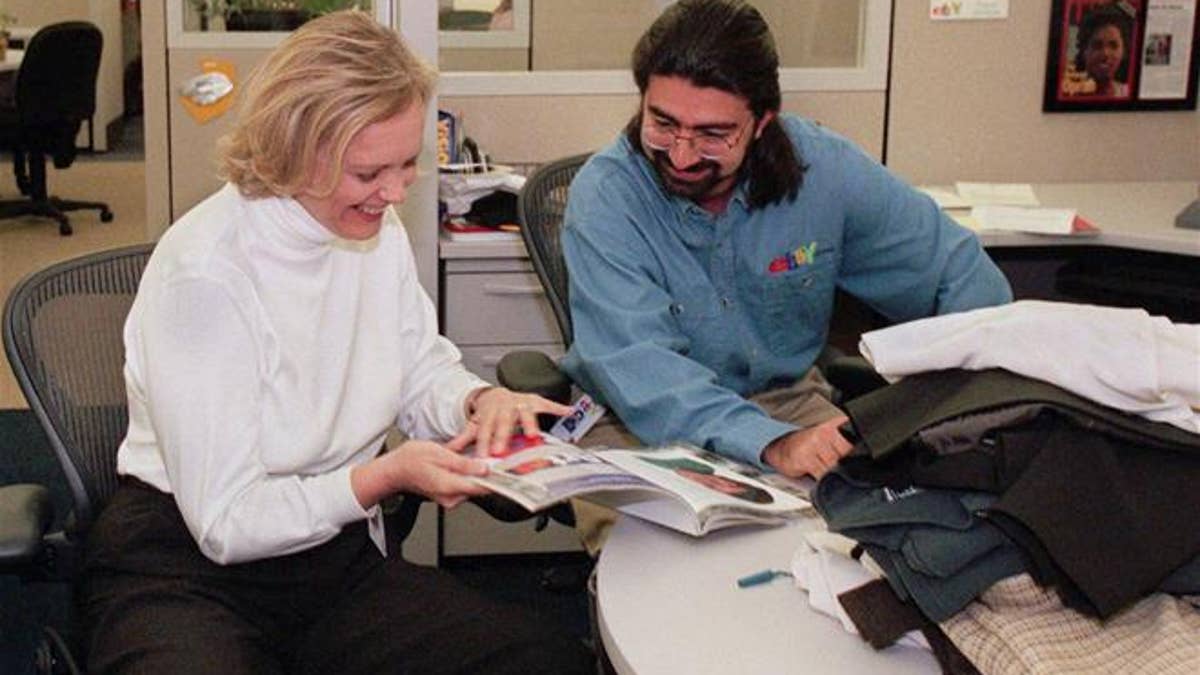
A 1999 file photo of eBay CEO Meg Whitman and founder Pierre Omidyar. (AP Photo/Randi Lynn Beach, File)
The concept of basic income is a simple idea: Impoverished people receive a fixed amount of money on a regular basis to pay for necessities such as food, clothing, and housing.
While the limited research available suggests that it can provide a host of benefits—lowering drug and alcohol abuse, and increasing education and entrepreneurship—few long-term studies have taken a hard look at how the strategy plays out over time.
That's about to change: eBay founder Pierre Omidyar is using his philanthropic investment arm Omidyar Network to invest $493,000 into a 12-year test in Kenya.
It will, in fact, be the largest test of basic income in history, reports Business Insider. The experiment will be run not by the government but by the charity GiveDirectly, which will pay 26,000 Kenyans across 200 rural villages 75 cents a day, or half the average income there, with 6,000 getting assistance over the 12 years.
More From Newser
That works out to nearly $275 a year, or just over $3,000 over the course of the experiment. Among the questions: Will people stop working entirely, go to school, start gambling? "The best part of this experiment is that we won’t have to wait 12 years for answers," says an Omidyar blog post.
"In the first few years GiveDirectly will already be able to produce insights on how people behave when they have confidence in long-term, 'no-strings-attached' income." (Finland just started a smaller-scale program.)
This article originally appeared on Newser: eBay Founder Invests $500K to Test Theory on Income
